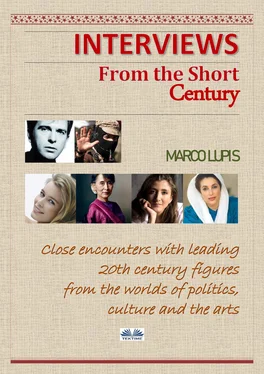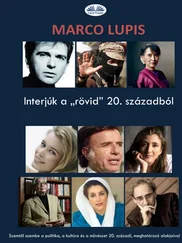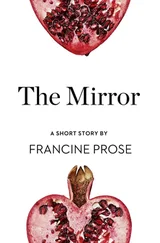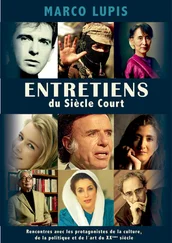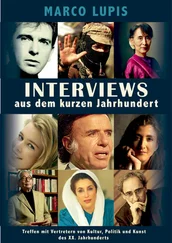Marco Lupis - Interviews From The Short Century
Здесь есть возможность читать онлайн «Marco Lupis - Interviews From The Short Century» — ознакомительный отрывок электронной книги совершенно бесплатно, а после прочтения отрывка купить полную версию. В некоторых случаях можно слушать аудио, скачать через торрент в формате fb2 и присутствует краткое содержание. ISBN: , Жанр: foreign_edu, Биографии и Мемуары, на английском языке. Описание произведения, (предисловие) а так же отзывы посетителей доступны на портале библиотеки ЛибКат.
- Название:Interviews From The Short Century
- Автор:
- Жанр:
- Год:неизвестен
- ISBN:978-8-87-304360-7
- Рейтинг книги:5 / 5. Голосов: 1
-
Избранное:Добавить в избранное
- Отзывы:
-
Ваша оценка:
- 100
- 1
- 2
- 3
- 4
- 5
Interviews From The Short Century: краткое содержание, описание и аннотация
Предлагаем к чтению аннотацию, описание, краткое содержание или предисловие (зависит от того, что написал сам автор книги «Interviews From The Short Century»). Если вы не нашли необходимую информацию о книге — напишите в комментариях, мы постараемся отыскать её.
Interviews From The Short Century — читать онлайн ознакомительный отрывок
Ниже представлен текст книги, разбитый по страницам. Система сохранения места последней прочитанной страницы, позволяет с удобством читать онлайн бесплатно книгу «Interviews From The Short Century», без необходимости каждый раз заново искать на чём Вы остановились. Поставьте закладку, и сможете в любой момент перейти на страницу, на которой закончили чтение.
Интервал:
Закладка:
The Zapatista Movement may have plunged the entire Mexican political system into crisis, but you haven't won, have you?
Mexico needs democracy, but it also needs people who transcend party politics to protect it. If our struggle helps to achieve this goal, it won't have been in vain. But the Zapatista Army will never become a political party; it will just disappear. And when it does, it will be because Mexico has democracy.
And if that doesnât happen?
Weâre surrounded from a military perspective. The truth is that the government won't want to back down because Chiapas, and the Lacandon Jungle in particular, literally sits on a sea of oil. And itâs that Chiapaneco oil that Mexico has given as a guarantee for the billions of dollars it has been lent by the United States. They canât let the Americans think they're not in control of the situation.
What about you and your comrades?
Us? Weâve got nothing to lose. Ours is a fight for survival and a worthy peace.
Ours is a just fight.
2
Peter Gabriel
The eternal showman
Peter Gabriel, the legendary founder and lead vocalist of Genesis, doesn't do many gigs, but when he does, he offers proof that his appetite for musical, cultural and technological experimentation truly knows no bounds.
I met him for an exclusive interview at Sonoria, a three-day festival in Milan dedicated entirely to rock music. During a two-hour performance of outstanding music, Gabriel sang, danced and leapt about the stage, captivating the audience with a show that, as always, was much more than just a rock concert.
At the end of the show, he invited me to join him in his limousine. As we were driven to the airport, he talked to me about himself, his future plans, his commitment to working with Amnesty International to fight racism and social injustice, his passion for multimedia technology and the inside story behind Secret World Live , the album he was about to launch worldwide.
Do you think the end of apartheid in South Africa was a victory for rock music?
It was a victory for the South African people, but I do believe rock music played its part.
In what way?
I think that musicians did a lot to make people in Europe and America more aware of the problem. Take Biko , for example. I wrote that song to try and get politicians from as many countries as possible to continue their sanctions against South Africa and keep up the pressure. It's about doing small things; they might not change the world, but they make a difference and it's something we can all get involved in. Fighting injustice isn't always about big demonstrations or grand gestures.
What do you mean?
Let me give you an example. There are a couple of elderly ladies in the Midwest of the United States who annoy the hell out of people who inflict torture in Latin America. They spend all their time firing off letters to prison directors, one after another. Because they're so well-informed, their letters are often published prominently in the American newspapers. And it often just so happens that the political prisoners they mention in their letters are suddenly released, as if by magic! Thatâs what I mean when I talk about how little things can make a difference. Basically, the music we make is the same as one of their letters.
Your commitment to fighting racism is closely linked to the work of your Real World label, isnât it, which promotes world music?
Absolutely. It's given me immense satisfaction to bring such diverse musicians together from places as far apart as China, Africa, Russia and Indonesia. We've produced artists such as the Guo Brothers from China and Nusrat Fateh Ali Khan from Pakistan. I've taken so much inspiration from their work, as well as from other artists on the Real World label. The rhythms, the harmonies, the voices... I had already begun to head in that direction as early as 1982, when I organised the first WOMAD [World of Music, Arts and Dance] festival. The audience were able to take part in the event, playing on stage alongside groups from Africa. It was such a meaningful, life-affirming experience that the festival has since been held in other parts of the world, including Japan, Spain, Israel and France.
Is that why some people call you the âfather of world musicâ?
Real World and world music are commercial labels above everything else; we publish music from artists the world over so that their music can be heard the world over, on radio stations and in record stores. But I want the artists who record an album on my label to become famous in their own right. No one says âis this reggae?â any more; they say âis this Bob Marley?â. In time, I hope that no one who hears a song by one of my artists asks âis this world music?â
You've recently shown a great interest in multimedia technologies, and your interactive CD âXplora1â has really got people talking. How does all this fit in with the activities of Real World?
There's so much you can do on that CD, like choose tracks by each individual artist just by clicking on the album cover. But I want to see so much more of this kind of thing; interactivity is a great way of introducing people to music. Essentially, what Real World is trying to do is blend traditional, analogue music, if you will, with the new digital possibilities that modern technology gives us.
Are you saying that rock music itself isn't enough any more? That it needs some kind of interaction with the listener? Do you want everyone to play a part in creating the final product?
Not always. For example, I tend to listen to music in my car and I don't want to need a screen or a computer to do that. But when Iâm interested in an artist or I want to know more about them, where they come from, what they think, who they really are, thatâs when multimedia technology can offer me some relevant visual material. Basically, in the future I would like to see all CDs offering this dual functionality: you can either simply listen to them, or you can âexploreâ them. With Xplora1 , we wanted to create a little world in which people could move around, make choices and interact with the environment and the music. There's loads of things you can do on the CD. Like take a virtual tour of the Real World recording studios, get access to events like the Grammys or the WOMAD festival, listen to live tracks, learn about my career from the early days with Genesis until the present day, and even remix my songs to your heartâs content!
And also have a virtual rummage in your wardrobe, right?
Absolutely ( laughs ). You can have a rummage in Peter Gabriel's wardrobe!
All this seems light years away from your experience in Genesis. What has stayed the same since those days? Have you never wanted, for example, to do another rock opera like âThe Lamb Lies Down on Broadwayâ? Have you moved on from all that?
Good question. I think Iâm still interested in some of those ideas, but in a different way. In one way, the things I was trying to do during my final years with Genesis were linked to the idea of being multimedia. Itâs just that back then, sound perception was restricted by the technology of the time. Now, I want to go a lot further down that road.
Going back to your political and humanitarian activities, now that apartheid is over, what are your other causes célèbres? What global injustices are you looking to rail against?
There are loads. But right now, I think the most important thing is to help people get their voices heard. Everyone should be able to appear on TV or have access to means of communication such as fax machines or computers. Basically, I think we have a chance today to use network communication technology to better defend peopleâs human rights.
Читать дальшеИнтервал:
Закладка:
Похожие книги на «Interviews From The Short Century»
Представляем Вашему вниманию похожие книги на «Interviews From The Short Century» списком для выбора. Мы отобрали схожую по названию и смыслу литературу в надежде предоставить читателям больше вариантов отыскать новые, интересные, ещё непрочитанные произведения.
Обсуждение, отзывы о книге «Interviews From The Short Century» и просто собственные мнения читателей. Оставьте ваши комментарии, напишите, что Вы думаете о произведении, его смысле или главных героях. Укажите что конкретно понравилось, а что нет, и почему Вы так считаете.
